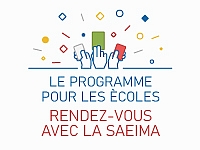 VideoGalerie
VideoGalerie
The main value in international law are human beings, their inviolable honour and dignity. The protection of this and other European values is intrinsically related to the quality of the decisions adopted by the European Court of Human Rights stemming from the professional capacity of its judges. Inese Lībiņa-Egnere,Deputy Speaker of the Saeima and Head of the Latvian delegation to the Parliamentary Assembly of the Council of Europe (PACE), stressed this on Friday, 20 October, at the Saeima, when opening a meeting of the PACE Committee on the Election of Judges to the European Court of Human Rights.
Lībiņa-Egnere highlighted the importance of the work of the Committee on the Election of Judges to the European Court of Human Rights. The Committee advises the PACE on candidates nominated by each member state.
In light of the discussions on improving the functioning of the European Court of Human Rights, the Deputy Speaker emphasised the need to ensure that the election process is as transparent as possible, understandable to the public, and politically neutral. Moreover, alongside existing solutions provided by international law, we need a unified political will, empathy and solidarity to overcome the unprecedented global challenges we now face.
On the eve of the centennial of the Republic of Latvia, it is important to remember that human rights were one of the cornerstones of the Baltic struggle for independence, while accession to the Council of Europe was one of Latvia’s main foreign policy goals upon restoring independence, said Lībiņa-Egnere. She pointed out that the Convention for the Protection of Human Rights and Fundamental Freedoms and the case-law of the European Court of Human Rights have had a major impact on Latvia’s judicial system. Namely, the Chapter on Fundamental Human Rights, which was included in the Constitution of the Republic of Latvia in 1998, is mostly based on the Convention and conclusions stemming from the ECT case-law. Besides, when interpreting this chapter of the Constitution, our courts have and still do base their decisions on the ECT case-law.
Today, the PACE Committee on the Election of Judges to the European Court of Human Rights meets at the main building of the Saeima with judiciary experts from Croatia, the Netherlands, the UK, and Latvia to discuss the ways to improve the procedure for electing Judges to the European Court of Human Rights.
Since 2015, the PACE Committee on the Election of Judges to the European Court of Human Rights has been headed by Boriss Cilevičs, member of the Latvian delegation. By tradition, one of the meetings held between the PACE sessions by each committee takes place in its chairperson’s country.
Photos: https://www.flickr.com/photos/saeima/albums/72157687294754161
Disclaimer & copyrights: https://www.saeima.lv/en/copyrights
Saeima Press Service







